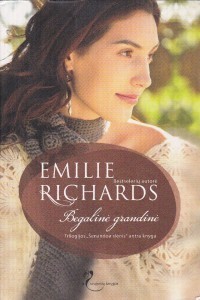Emilie Richards's Blog, page 130
October 15, 2011
Sunday Poetry: The Nothingness of Air
 Welcome to Sunday Poetry. If this is your first visit you can read about the purpose and inspiration of my Sunday blogs here.
Welcome to Sunday Poetry. If this is your first visit you can read about the purpose and inspiration of my Sunday blogs here.
Today's poem, Song for Autumn by Mary Oliver seems perfect for mid-October, when the anticipation of winter is always with us, even on days when summer seems to be asserting itself, although briefly.
The leaves in our neighborhood are beginning to turn. I describe them in detail to my husband, who is color blind, and he tells me what he sees and doesn't. It's a different view of the same thing, much like the way each of us looks at national events as another presidential election rounds the corner.
I am ambivalent about autumn, having grown up in Florida, then lived many years in colder climes when autumn made me fear what was to come.
What does autumn mean to you? If you've celebrated a marriage or birth or lost a loved one this season, perhaps it brings back that memory. Perhaps you look forward to quieter months when leaving home isn't worth the trouble and a warm fire beckons you to stay? Does your firewood shift a little, longing to be on its way? Do you?
Remember there are no quizzes here, no right ways to read or contemplate the poem we share. Just come along for the "read," and enjoy the experience. What line, word or thought will you carry along with you this week? And if you'd like to tell us where the poem took you? We'll listen.
October 13, 2011
Just For Fun–Il Profumo del Mare and other delights
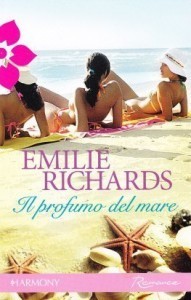 I have a problem. I hate to throw out books. You may think this is a non-issue, since it's easy enough to donate them to church or library sales, throw them on a card table at a garage sale, give them to friends. But the truth is, I have books most people I know can't read.
I have a problem. I hate to throw out books. You may think this is a non-issue, since it's easy enough to donate them to church or library sales, throw them on a card table at a garage sale, give them to friends. But the truth is, I have books most people I know can't read.
I have books in Italian, like this truly gorgeous version of Fortunate Harbor.
I have books in Lithuanian (that took me quite a while to figure out) like the lovely version of Endless Chain below right. And, most startling of all, I have Fox River in Swedish, a two-for-one bargain with Nora Roberts–let's face it, that can't hurt sales, right? In fact I received an entire box of the Swedish Fox River. Nora and me, sitting in the middle of my study, just waiting to be pitched into my recycling bin.
Only I just can't quite do it.
Oddly enough this summer I received a small box of my Swedish books at my summer address. No sooner had I gotten the courage to toss them than I met a woman who was (you can't make this stuff up) an organizer of a Scandinavian Folk Festival in Jamestown, NY and badly needed door prizes. How this came up in conversation, I can't remember, but she was one step ahead of garbage pickup.
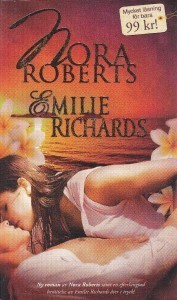 So maybe someone will tell me they need a novel to help practice their Italian. Or quite possibly a Lithuanian family will move into my neighborhood and I'll have a built-in welcome gift. Heck, maybe I'll just drag that entire box of Fox River back to NY for next year's Scandinavian Festival, where the books will be richly appreciated.
So maybe someone will tell me they need a novel to help practice their Italian. Or quite possibly a Lithuanian family will move into my neighborhood and I'll have a built-in welcome gift. Heck, maybe I'll just drag that entire box of Fox River back to NY for next year's Scandinavian Festival, where the books will be richly appreciated.
Meantime, while I'm waiting for another miracle, don't worry if you don't hear from me for a while. It's nothing serious. I just can't cross the floor to get to my computer.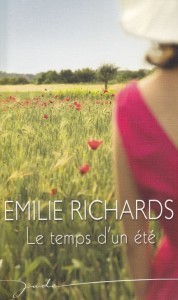
Just for fun, can you guess the English title of the cover on the right? I only know which book it is because I recognize the names of the characters, which thankfully weren't changed. But without that clue, care to try? The title in French is: Le temps d'un été.
October 10, 2011
CHUsday: Flexitarian, Vegetarian, Vegan and Carnivore
So, do you know what kind of "eater" you are? Or have you ever even wondered. Maybe you grew up with fried-green tomatoes, ham biscuits and red eye gravy. Maybe you grew up with brown rice, tofu and bean sprouts. Or maybe your family was eclectic and ate a little of this and a little of that. Chances are, though, that there were only two real categories. Vegetarian or 'real food." The rest was immaterial. And if you were a vegetarian, you'd better plan to eat a lot of macaroni and cheese, because wherever you went, that was the dish people made for you.
These days categories have expanded greatly. We have "pescatarians" who are vegetarians who also eat fish. "Lacto-ovo" vegetarians who eat no flesh but do eat eggs and dairy products. We have "vegans" who eat nothing associated with animals, including gelatin (remember Janya's reaction to the gelatin in Wanda's grapefruit pie?) "Raw food vegans" who eat–no surprise here–only raw food. And the newest addition and my personal favorite "flexitarian," which allows any foods but heavily emphasizes vegetables.
I'll confess I'm not, like Aggie and Ed in my mystery series, a vegetarian. I'm a flexitarian. And what a relief to finally have a word to describe my eating habits. I rarely cook red meat. The closest I've come this year was a chuck roast I divided into small pieces for soup stock. We occasionally buy an organic chicken and use it sparingly, broth, taco filling, stir fry, pizza. Turkey sausage makes its way into jambalaya and gumbo, and we eat lots of seafood along with at least twice as many vegetables as we once did. I order whatever sounds good when we go out, but more and more find that beef and pork's not high on my list, and I always avoid veal and lamb.
We slipped into eating this way when we began to look for healthy recipes. As we became more and more interested in vegetarian alternatives, I began to look for cookbooks. When I saw The Mediterranean Vegan Kitchen was highly recommended, I asked for it for my birthday. Then it sat. Sound familiar? That's the CHU motto. Buy a new cookbook to decorate your bookshelf.
This week I decided to pull out MVK and try a recipe for my CHUsday blog. First, though, I'd thought about making my favorite Turkish red lentil soup from The Sultan's Kitchen, but I only had green lentils, so I looked for a new lentil soup to try. And am I glad I did. The Turkish version is fabulous, but Egyptian Lentil Soup from MVK is exceptional, too. Different, with cumin and fennel seeds sauteed with vegetables before the lentils are added, but equally good.
I'll confess when I realized I now owned a "vegan" cookbook, I wasn't overly excited. Vegan? Didn't that require all kinds of odd meat substitutes? I mean, I adore tofu, but "fake" meat doesn't appeal to me. The good news? Nothing in this cookbook is fake. Just fabulous ingredients combined in new and delicious ways. If this recipe is in any way representative of what I have to look forward to, I can't wait to use it again.
Do you know what kind of eater you are? Let us know. We're interested.
Don't forget, CHUers. Make a new recipe from an old or unused cookbook OR this month, make one you've found online and wanted to try. Then comment here or on any of my Cookbook Hoarders United blogs and let us know what you made and how you liked it (plus where it came from) and you'll be eligible for this month's giveaway. Details here.
October 8, 2011
Sunday Poetry: How the Pieces Fit Together
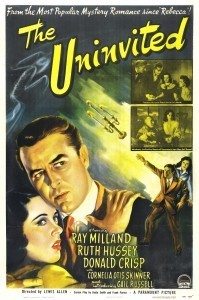 Welcome to Sunday Poetry. If this is your first visit you can read about the purpose and inspiration of my Sunday blogs here.
Welcome to Sunday Poetry. If this is your first visit you can read about the purpose and inspiration of my Sunday blogs here.
Last week's poem, Movies, by Billy Collins, was in honor of all the movies I seem to be watching now that the weather's changing. Additionally, I'm closing in on the deadline of my next book, and evenings with Netflix are a great way to put one story aside and relax with another.
Today's poem, The Uninvited, by Lawrence Raab, references a movie by the same name from 1944 starring Ray Milland and Ruth Hussey. I was immediately drawn to the poem since the Jewish high holy days, between Rosh Hashanah and Yom Kippur, are always a poignant reminder that forgiving and letting go of mistakes and failures–mine and others–is vital to my spiritual growth. The poem explores this and seems to ask if we've outgrown the need for messages that simple and precise.
In honor of the high holy days, I posted a video on my Facebook page that my husband (a Unitarian-Universalist minister) did on forgiveness. Then I found this poem. It was meant to be.
On October 30th at 10:15 AM, Turner Classic Movie channel will show The Uninvited. I've set my DVR to record it. Let me know if you watch it, too. Do you need convincing? For fun, here's the original trailer.
October 6, 2011
Who's At The Controls? You Might Be Surprised
 Today I got an email from an unhappy reader because the copy of Sunset Bridge she bought was missing significant pages. Unfortunately this was the fourth or fifth email of its kind in the past few weeks. Clearly somewhere along the way a small batch of that title, the final of three in my Happiness Key series, went awry. The printing press got the hiccups, or the persons operating it did. Most likely there are a few more copies floating around still to be discovered.
Today I got an email from an unhappy reader because the copy of Sunset Bridge she bought was missing significant pages. Unfortunately this was the fourth or fifth email of its kind in the past few weeks. Clearly somewhere along the way a small batch of that title, the final of three in my Happiness Key series, went awry. The printing press got the hiccups, or the persons operating it did. Most likely there are a few more copies floating around still to be discovered.
Most of the readers who've emailed me have suggested I might be able to fix this for them. Short of flying to a reader's house and inserting typed pages where the missing pages should be, of course I can't really '"fix it". Nor can I afford to buy another book and mail it, or use one of my limited author copies and pay the postage (although I certainly have). The good news? There was something I could do.
I notified my publisher about the problem, and they, bless them, will do whatever they can to make it right. Printing and selling books (not writing them) is their business. Had the reader contacted Mira Books directly, her solution might have been even quicker, but are readers expected to know this? Nope. There I was, right on the Internet, and after all, my name's on the cover. I would have emailed me, as well.
So many people are involved in the publishing of a novel (traditional publishing) that I think it's time to explain who does what before a book arrives at your favorite bookstore. The book biz is multifaceted, with many people involved. By the time a book finds its way into your hands, it's been "handled" by pros of all kinds, author, literary agent, line editor, copy editor, public relations and promotion teams, cover artists, proofreaders, sales team, buyers at chains and indie bookstores, booksellers and cashiers. A complicated business, right?
This is a bare-bones-basic list, and of course, there are things I haven't listed. Publisher in this instance means anyone who works for the company who decides to put the book in print. You'll get the idea.
The Author Controls (before and during completion of the book):
The initial story idea, characters and setting
How many changes, if any, she is willing to make in the initial idea to sell it
The quality of her prose–give or take editorial changes
The telling of the story–give or take editorial suggestions
Deadlines, and if she's going to make them (deadlines being very much on my mind right now)
Contracts and royalty payments she is willing to agree to
The Author Also Controls (after completion) :
How much, if any, promotion she is willing to do
How many editorial changes she is willing to accept
How much of a fuss she will make about covers and cover copy
The Publisher Controls:
Which authors' books they will buy and how many copies they will put on bookshelves
The final product, the look, the format, the font and font size, the author or review quotes chosen inside and out, etc.
Printing of the book and the numbers in print
Distribution
Which authors they will promote to help get them on bestseller lists
Which authors will represent the publisher to the public
That's just a sampling, but what about readers? What do readers control? Well, this blog is long enough. That's a blog unto itself. So look for it soon. In the long run, readers have the most control of all, and how well you use it determines which books you'll see at your favorite bookstore.
Missing a few pages can be easily rectified. But missing books you really want to read? Nobody can control that except you.
October 3, 2011
CHUsday: What Will You CHUse To Make This Month?
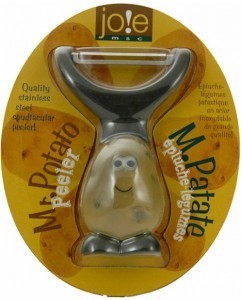 Congratulations to Nancy Badertscher, who won last month's CHU giveaway by trying a vegetarian broccoli quiche to feed her visiting vegetarian children. Nancy used a recipe from Pillsbury's Easy Vegetarian Meals, and I'm providing the link to the same quiche, as well as the cookbook.
Congratulations to Nancy Badertscher, who won last month's CHU giveaway by trying a vegetarian broccoli quiche to feed her visiting vegetarian children. Nancy used a recipe from Pillsbury's Easy Vegetarian Meals, and I'm providing the link to the same quiche, as well as the cookbook.
I will warn you, though. Poppin' Fresh, the Pillsbury doughboy, who you may find annoying on television, is far MORE annoying at the Pillsbury site, popping up on every page. If you don't want to join pillsbury.com, just take a deep breath and hum "Nuthin says lovin' like doughboys from the oven." Eventually he disappears, most likely to annoy other people who will also think seriously about trying to bake and eat him.
Nancy says while she liked the quiche well enough, next time she would use white rice because the brown didn't quite get done. She also says next time she will add a little salt, since it didn't call for any. The cookbook? She liked it well enough to try another recipe in the future. That's always the test.
For me, one of the most enjoyable parts of cooking is adding my own touches, like Nancy plans to do. I have a rule, however, that I make a recipe exactly as written the first time. After that I can deviate to my heart's content. That way I always know whether problems are mine or the recipe's.
How many of those cute Pillsbury cookbooks do you have in your cookbook stash? I always buy the breakfast collections, because breakfast is my favorite way to entertain. One yummy recipe, chili egg puff, a make ahead breakfast casserole, originally came from an old Pillsbury breakfast cookbook. If you try it, you'll find it's great for family or company and simple to put together the night before.
For the month of October I'm adding an incentive for the CHU giveaway. Have you found an online recipe that you've bookmarked, but haven't yet tried? If you try it this month and report, I'll enter you in October's giveaway, too. Some of you have told me you're in the midst of kitchen remodeling, moving, or simply don't have cookbooks you don't use.
So this month, there are no excuses. Cookbook OR online. Your choice. Just give that recipe a try, then tell us about it–and if it's an Internet recipe, please send me the link. Remember, you can enter more than once, and all entries will also be eligible for the final giveaway.
This month's silly kitchen gadget, Mr. Potato Peeler, is from Joie again (maker of many silly gadgets) and he'll accompany an autographed novel to the home of our October winner.
Cook good food, try new recipes, eat with a smile on your face.
September 30, 2011
Sunday Poetry: So Long As I Am Not In Danger
 Welcome to Sunday Poetry. If this is your first visit you can read about the purpose and inspiration of my Sunday blogs here.
Welcome to Sunday Poetry. If this is your first visit you can read about the purpose and inspiration of my Sunday blogs here.
I loved today's poem the moment it found me. Maybe I love it most because we rejoined Netflix this month after a summer away, and in the past two weeks I've seen more movies than I'd seen the entire spring and summer. Movies, by Billy Collins, is a tongue-in-cheek look at the joys of the cinema, and our yearnings to experience life on the safety of the big screen. I love the imagery here. Can you imagine Collins "with the bed hitched up to the television, they way they'd hitch up a stagecoach?" Every time I read that, I smile.
Where do you feel safe? Who would you like to be in an old Western? The bartender or the station master? How about the hoochie-mama in can-can gear at the local saloon? The prim schoolmistress who yearns for the sheriff? The sidekick who makes everybody laugh? The faithful dog who trots out of town at the heels of the palomino stallion? With which character would you feel safe? Which one would allow you to take the "short cut home?"
Remember there are no quizzes here, no right ways to read or contemplate the poem we share. Just come along for the "read," and enjoy the experience. What line, word or thought will you carry along with you this week? And if you'd like to tell us where the poem took you? We'll listen.
September 29, 2011
Books As Weapons: A War on Words
Tomorrow is the final day of Banned Books Week, 2011. In the words of the American Library Association:
"Banned Books Week (BBW) is an annual event celebrating the freedom to read and the importance of the First Amendment. Held during the last week of September, Banned Books Week highlights the benefits of free and open access to information while drawing attention to the harms of censorship by spotlighting actual or attempted bannings of books across the United States."
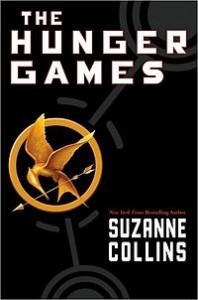 This year have you read and enjoyed Water for Elephants by Sara Gruen? How about Anne Frank: The Diary of a Young Girl, or Snow Falling on Cedars by David Guterson. Then there's The Hunger Games by Suzanne Collins, Brave New World by Aldous Huxley, Speak by Laurie Halse Anderson, Song of Solomon by Toni Morrison, The Catcher in the Rye by J.D. Salinger.
This year have you read and enjoyed Water for Elephants by Sara Gruen? How about Anne Frank: The Diary of a Young Girl, or Snow Falling on Cedars by David Guterson. Then there's The Hunger Games by Suzanne Collins, Brave New World by Aldous Huxley, Speak by Laurie Halse Anderson, Song of Solomon by Toni Morrison, The Catcher in the Rye by J.D. Salinger.
According to Shelf Awareness, a daily email for the book trade, each of these books has been challenged, banned, restricted or removed from library shelves this year. Sex, profanity and racism were the reasons most often quoted for objections, and those objections are most frequently issued to school boards. Some school boards take the First Amendment seriously. They understand there's a wide variety of opinion on what's age-appropriate, and they trust the teachers and librarians who have considered the options and chosen accordingly.
Some do not.
The moment we let any group dictate what we will read, because we like the way they think, we immediately set ourselves up for the possibility that the next group to make decisions may not agree with us. By then, it's too late. Once we open Pandora's box and allow censorship to fly free and wide, can we predict where and how it will land?
I'm the parent of four children. I had the right to help them choose books I thought they should read, just as I had the right to suggest that other titles might not be appropriate. But it never occurred to me to challenge a teacher's choice, or a book on the shelves of my local library. I talked to my children. If they had a question about what they read, or saw on TV or at the movies, they knew they could ask. Discussion was welcomed, and discussing fictional situations is a wonderful way to move into discussing real life.
I also trusted their choices. If a book was too gritty, too controversial, too explicit, they were unlikely to choose it, just the way you or I turn off a video or a television program the moment we realize it's not to our taste, or it's going to give us nightmares.
The odd thing about banning books? I can't imagine a more sure-fire way to promote them. Tell a child or a teenager he/she can't do something, then stand back and see what happens.
But if he/she doesn't rebel? If he/she decides that allowing others to determine his taste and views, that allowing others to tell him what he should think and read is a good thing? Then haven't we as parents, teachers, administrators, and even ministers, failed in the most basic of ways? Because education is all about ideas. Good ones, bad ones, controversial ones. It's not about pounding in a message. As a country, we've always been proud of that distinction. Let's be sure we protect that freedom.
For more information, including links to read-alouds of banned books, you will enjoy visiting Banned Books Week .
September 26, 2011
CHUsday and Bread's Baking in the Oven
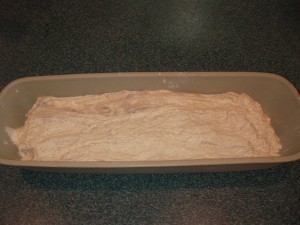 If you've tuned in for the first time, you can read all about CHUsday and my monthly giveaway here. Or go to Cookbook Hoarders United under categories and see what we've been doing.
If you've tuned in for the first time, you can read all about CHUsday and my monthly giveaway here. Or go to Cookbook Hoarders United under categories and see what we've been doing.
The comments have slacked off, so if you're pulling out old cookbooks, you're not telling me and entering the giveaway. Why not make something by the end of the month, tell us what you made and how it went, and enter for September's autographed book and silly kitchen gadget (Yolky, the amazing egg separator.) Kids are back in school and it's autumn. Think soups, or stews, or maybe hot apple pie. There's always a wonderful casserole you've yet to discover.
Several years ago my youngest son gave me a new bread book, Artisan Bread in Five Minutes A Day by Hertzberg and Francois. He knew how much I love to make bread, and he thought this would be a fun new addition. I thought so, too, only I had my own bread ritual, and never quite got into this radically different approach.
Then this summer friends in New York gave us a wonderful Le Creuset 5 1/2 quart round French oven, much like the one I've linked to here at Amazon. This was the perfect pan to try Artisan bread, so my husband decided to give it a whirl, despite not having the cookbook with us. Michael likes to cook, but he'd never before made bread. A quick Internet search found a similar recipe for Sullivan bread from the NY Times, and off he went. The resulting bread was so good, we were hooked.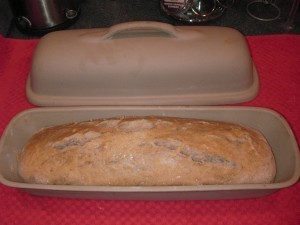
Once we returned home, Michael pulled out the Artisan Bread cookbook (Hoarder alert) and read the instructions. I'd already bought the 6 quart plastic container to store the dough in the fridge, (Hoarder alert #2) even though I hadn't used it for that, and I'd also bought a clay pot with a lid (Alert #3) that turned out to be the perfect pan for a long Artisan loaf. I must have known, right?
King Arthur must have known, too, because the pan I've linked to is MUCH more expensive now. Motto: Sometimes hoarding pays.
The fun part of Artisan bread is that you simply mix the ingredients–lots of flour to make lots of bread–then after a brief sojourn on your counter, you store it in a covered contained in the fridge. No kneading, no prolonged rising and punching down. You then use the dough to make bread for the next two weeks. Michael made his first loaf, small, round and perfect, the next day, and unfortunately we forgot to take a photo. The one pictured here–dough stage first, then baked–was the second, and higher than it looks in the photo.
This bread is delicious, nothing like my more traditional loaves, but chewy and flavorful, perfect with those soups and stews I mentioned before. We're finishing the first batch of dough tomorrow when I make a pot of vegetable soup and spaetzle. There are lots of options in the cookbook, so Michael will probably try something different, but the one pictured is the Peasant Bread, with a little rye and a little whole wheat. Like all cooking, there's a learning curve, but even the mistakes have turned out. This method truly is nearly foolproof.
I highly recommend this cookbook. Very definitely worth hoarding. If you've never been successful making bread, this is the book for you.
September 24, 2011
Sunday Poetry: I Cried Over Beautiful Things
 Welcome to Sunday Poetry. If this is your first visit you can read about the purpose and inspiration of my Sunday blogs here.
Welcome to Sunday Poetry. If this is your first visit you can read about the purpose and inspiration of my Sunday blogs here.
Friday was the first day of fall, and deserves a poem in commemoration. I've chosen Autumn Movement by Carl Sandburg, and because it's in public domain, I can quote it here.
Autumn, a time of pumpkins and cornstalks, harvest celebrations, and ghosts and ghoulies trick-or-treating on our doorsteps, is also a time of endings. Sandburg doesn't dwell there, but talks about "new beautiful things" to come, suggesting that change is just that, and not to be feared.
As a girl in Florida, autumn, which promised the relief of blazing temperatures and high humidity, was a favorite season, while summer was something to dread. Later in my life, when I lived in a town with heavy snowfall which often started in autumn, my preferences reversed.
Which season speaks most clearly to you? Do you, too, cry over beautiful things in autumn?
Autumn Movement
by
Carl Sandburg
I cried over beautiful things knowing no beautiful thing lasts.
The field of cornflower yellow is a scarf at the neck of the copper sunburned woman, the mother of the year, the taker of seeds.
The northwest wind comes and the yellow is torn full of holes, new beautiful things come in the first spit of snow on the northwest wind, and the old things go, not one lasts.
Remember there are no quizzes here, no right ways to read or contemplate the poem we share. No dissecting allowed. Just come along for the "read," and enjoy the experience. What line, word or thought will you carry along with you this week? And if you'd like to tell us where the poem took you? We'll listen.

